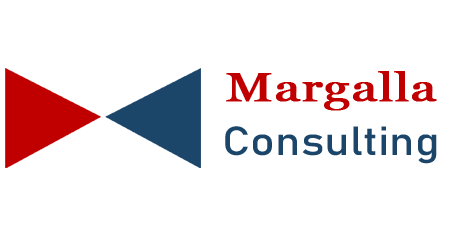Operating in a volatile security environment, particularly in third-world countries, presents unique challenges for businesses. Political instability, economic unpredictability, social unrest, and poor law enforcement often disrupt operations and undermine investor confidence. However, businesses can not only survive but also thrive in such conditions by adopting proactive, strategic approaches. Here’s how organizations can navigate these challenges effectively:
Conduct Comprehensive Risk Assessments
A clear understanding of the risks is the foundation of resilience. Businesses must regularly conduct thorough security risk assessments to identify potential threats, vulnerabilities, and their impact on operations. Key aspects of such assessments include:
- Analyzing political, social, and economic landscapes.
- Mapping physical and digital threats.
- Assessing supply chain dependencies and risks.
Engaging professionals in Security Risk Management (SRM) ensures that risks are understood and mitigated through tailored strategies.
Build Robust Security Protocols
Once risks are identified, businesses should establish and implement security measures that align with global best practices. Key strategies include:
- Creating layered security mechanisms for facilities and assets.
- Investing in surveillance, access control systems, and cybersecurity infrastructure.
- Training employees in security awareness and emergency protocols.
- Partnering with local security providers for enhanced on-ground intelligence.
A proactive security strategy not only protects assets but also instills confidence among employees and clients.
Develop Crisis Management Plans
Volatile environments demand that businesses prepare for the unexpected. Effective crisis management involves:
- Establishing a crisis response team with clearly defined roles.
- Developing and rehearsing business continuity and disaster recovery plans.
- Setting up communication channels to disseminate accurate and timely information during emergencies.
Regular simulations and drills ensure preparedness and minimize disruption during real crises.
Diversify Operations and Supply Chains
Concentrating operations in a single location or relying on a limited set of suppliers makes businesses vulnerable to localized disruptions. Diversification is a critical strategy to ensure resilience:
- Establish multiple production hubs and distribution centers.
- Partner with suppliers in different geographic regions.
- Build redundancies in supply chains to mitigate disruptions.
Diversification not only safeguards operations but also enhances flexibility and scalability.
Foster Strong Community Relations
Building goodwill and trust within the local community can reduce the likelihood of becoming a target in volatile regions. Businesses can achieve this by:
- Supporting local initiatives, such as education, healthcare, and infrastructure projects.
- Hiring and training local talent to build long-term relationships.
- Promoting fair wages and ethical practices.
A well-respected organization often enjoys local protection and cooperation, even in challenging times.
Leverage Technology for Enhanced Resilience
Technological advancements offer tools to mitigate risks and optimize operations in volatile environments:
- Surveillance and Monitoring: Drones, AI-enabled CCTV systems, and IoT sensors can enhance security oversight.
- Data Analytics: Predictive analytics can help businesses anticipate and respond to emerging risks.
- Communication Platforms: Secure and reliable communication systems ensure seamless coordination during crises.
Technology-driven solutions enable businesses to act swiftly and decisively in the face of adversity.
Align with Government and Security Agencies
Partnering with local authorities and law enforcement agencies enhances situational awareness and ensures regulatory compliance. Steps to foster collaboration include:
- Engaging in public-private partnerships for security initiatives.
- Maintaining open communication with government and security agencies.
- Participating in policy discussions and advocating for a stable business environment.
A cooperative approach builds trust and ensures smoother operations in challenging environments.
Prioritize Employee Safety and Well-being
A business is only as strong as its workforce. Ensuring employee safety and well-being is essential for maintaining productivity and morale:
- Offer security training and personal safety resources to employees.
- Provide comprehensive health insurance and crisis support programs.
- Establish evacuation plans for high-risk scenarios.
A protected and motivated workforce can significantly contribute to organizational resilience.
Invest in Leadership and Crisis Management Training
Strong leadership is crucial in navigating volatile situations. Businesses should prioritize leadership development programs focusing on:
- Decision-making under pressure.
- Conflict resolution and negotiation skills.
- Strategic thinking in high-stakes environments.
Leaders equipped to handle uncertainty inspire confidence and guide organizations through crises.
Adopt a Long-Term Perspective
Lastly, businesses must adopt a long-term perspective to thrive amidst volatility. While short-term disruptions are inevitable, staying focused on strategic goals can help organizations emerge stronger. Key approaches include:
- Maintaining financial buffers for unanticipated challenges.
- Investing in innovation and R&D to adapt to changing conditions.
- Fostering a culture of resilience and adaptability within the organization.
Surviving and thriving in volatile security situations requires businesses to be proactive, resilient, and adaptable. By combining robust risk management, technological innovation, strong community engagement, and a focus on employee well-being, businesses can overcome challenges and capitalize on opportunities in third-world countries.


